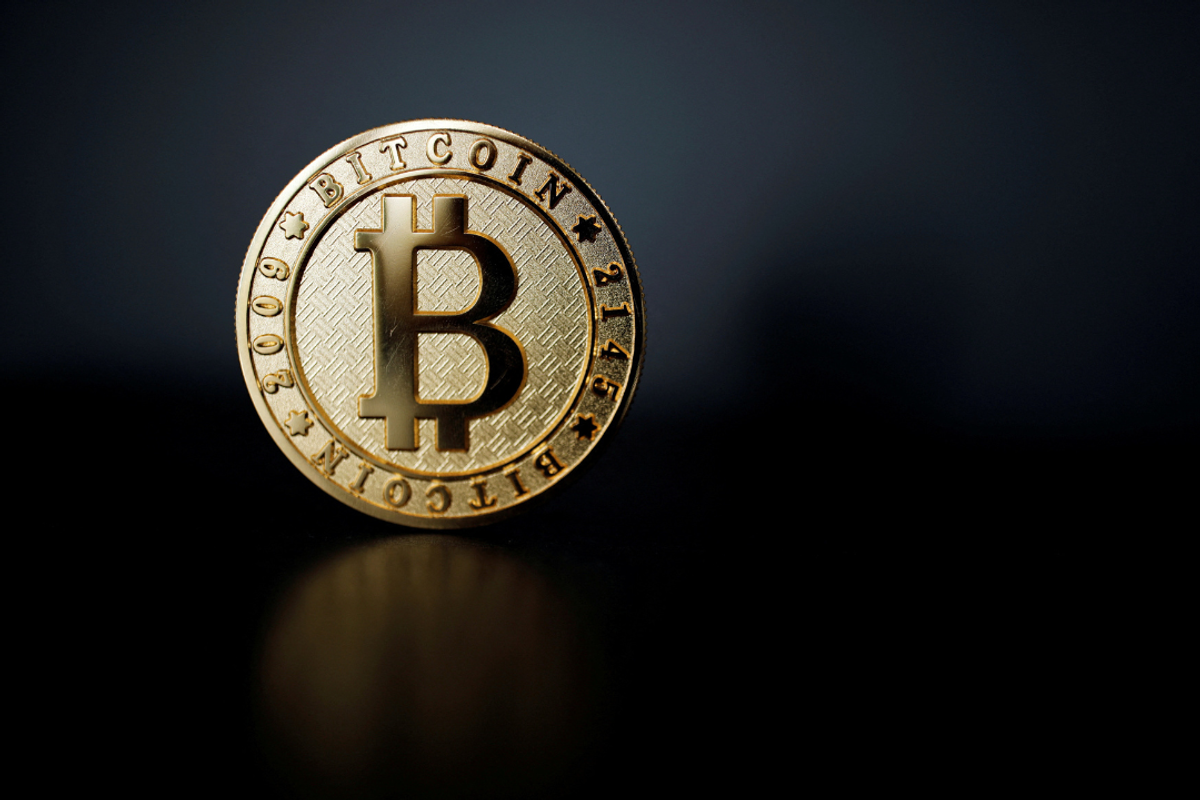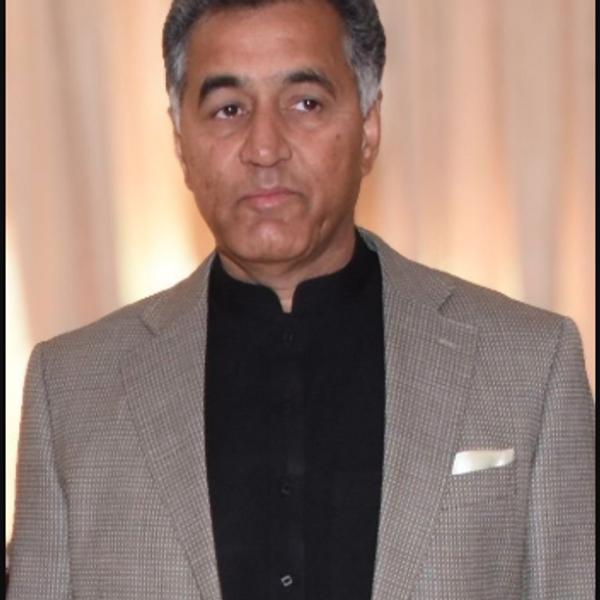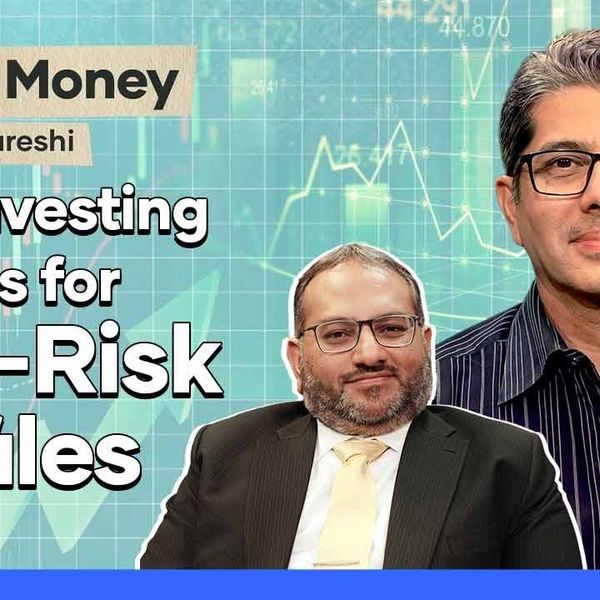Why Pakistan needs a Bitcoin strategic reserve fund
Pakistan could benefit from exposure to Bitcoin as a hedge against inflation and currency devaluation
Ali Farid Khwaja
Guest Contributor
Ali Farid Khwaja is the Chairman of KTrade Securities and a consultant for Stacks Foundation.

Bitcoin has now become a mainstream asset class. Just over 15 years ago (in 2009), it started as a movement against mainstream finance, but it is now fully adopted, accepted, and embraced by traditional finance.
The world's largest banks, such as JPMorgan, are offering it to their customers; the biggest asset managers, such as BlackRock and Fidelity, own it; and even conservative endowments, such as the Harvard Endowment, have exposure to it.
This mainstream adoption has driven Bitcoin's price to over $100,000, making it by far the best-performing asset class globally. The next and most anticipated adoption wave is from states and governments adding Bitcoin to their national reserves.
So far, smaller and more innovative countries, such as El Salvador and Bhutan, have publicly accumulated Bitcoin reserves. However, with President Trump taking office, the U.S. government is expected to drive global adoption.
Last year, Senator Cynthia Lummis of Wyoming introduced the Bitcoin Strategic Reserve Bill in the Senate, which proposes that the U.S. should purchase 5% of Bitcoin's total supply.
Beyond the federal level, more than 23 U.S. states have introduced bills advocating for a Bitcoin reserve. Most states are proposing to allocate 5% to 10% of their state funds to Bitcoin.
Utah is expected to become the first state to pass such legislation. Adoption by the U.S. will likely force other countries and multilateral financial institutions, such as the IMF and World Bank, to include Bitcoin in their asset allocation as well. Many countries already have significant Bitcoin holdings, often built by seizing assets from Bitcoin companies.
For example, the U.S. already holds Bitcoin worth $7.4 billion, China has around $6.7 billion, and the U.K. holds $2.12 billion. Bhutan has $780 million worth of Bitcoin earned through mining, while El Salvador has accumulated $201 million through direct purchases.
Ukraine has a Bitcoin reserve of $41.7 million, built through public donations. It is likely that countries such as the UAE, Russia, Kazakhstan, and Iran also have sizable Bitcoin reserves.
The main rationale behind the U.S.'s Bitcoin Strategic Reserve Bill is that allocating Bitcoin will provide a hedge against inflation and currency debasement.
Proponents believe that Bitcoin's appreciation can help the U.S. address its federal debt problem. Optimistic Bitcoin price forecasts vary from $700,000, as projected by BlackRock CEO Larry Fink, to over $1.5 million, as estimated by Ark Invest’s Cathie Wood.
Beyond public-sector adoption, corporate treasuries are also increasing their exposure to Bitcoin. This trend was led by U.S.-listed technology company MicroStrategy, whose CEO, Michael Saylor, was an early Bitcoin investor. MicroStrategy now holds more than 478,740 Bitcoin, worth around $47 billion. More than 70 U.S.-listed companies now have Bitcoin in their treasury funds.
Building Bitcoin reserves at the corporate, banking, fund, and government levels is no trivial task. It requires institutional-grade infrastructure for custody, accounting, tax compliance, security, KYC/AML, settlement, and trading—all of which are now in place and have passed audits and compliance requirements.
While public fascination with the crypto industry often centers on price volatility, significant institutional development has been taking place behind the scenes.
A decade ago, companies struggled to determine how to buy, store, secure, account for, and sell Bitcoin. Today, traditional service providers handle these needs.
For example, institutional digital asset custody is provided by firms such as Zodia (owned by Standard Chartered), Komainu (backed by Nomura Bank), Hex Trust, and Tungsten (backed by ADQ), all of which are licensed in multiple jurisdictions.
Many banks either offer crypto trading directly or have invested in broker-dealers. A prime example of traditional finance embracing digital assets is the rise of Bitcoin ETFs.
More than 250 digital asset ETPs (exchange-traded products) are listed in European markets, and U.S. Bitcoin ETFs collectively track more than $129 billion in assets, making them the most popular ETF asset class. These institutional-grade products and services are now available globally for any company, bank, or country seeking Bitcoin exposure.
The digital asset industry has evolved, expanded, and reached critical mass. The overall market now exceeds $3 trillion. Yet, despite this innovation, Pakistan remains at the starting point institutionally—still debating what constitutes a digital asset and whether it should be regulated.
Key stakeholders who oversee financial infrastructure have limited institutional knowledge, and those advising them are mostly retail traders. As a result, discussions continue to focus on price levels, volatility, and risk, rather than long-term strategy. The space remains dominated by social media influencers offering forecasts on token prices.
Of course, these are generalizations—there are knowledgeable individuals within Pakistan’s financial and tech sectors. However, the country could be far more advanced in this space.
Notably, two of the top 30 digital assets, Stacks and Aptos, were co-founded by scientists of Pakistani origin. One of the leading institutional service providers, Haruko, is run by Pakistanis, and Pakistanis hold senior executive roles at two of the top three global crypto exchanges. Stacks has even made a substantial donation to establish a blockchain research center at LUMS.
Like the U.S., Pakistan also needs to hedge its assets against inflation and currency debasement—arguably even more so. The country would benefit from exposure to an asset class that could help address its sovereign debt problem.
Additionally, Pakistan has excess power that could be used for Bitcoin mining. The same factors driving U.S. adoption apply to Pakistan as well.
No wonder Bitcoin is already the most popular financial asset class among Pakistanis, with more than 20 million using offshore crypto exchanges.
The opportunity to build a strategic Bitcoin reserve still exists, but there will be little point in doing so once its value surpasses $700,000.
The author is the Chairman of KTrade Securities and a consultant for Stacks Foundation. He runs Oxford Frontier Capital, an investment firm in London.










Comments
See what people are discussing